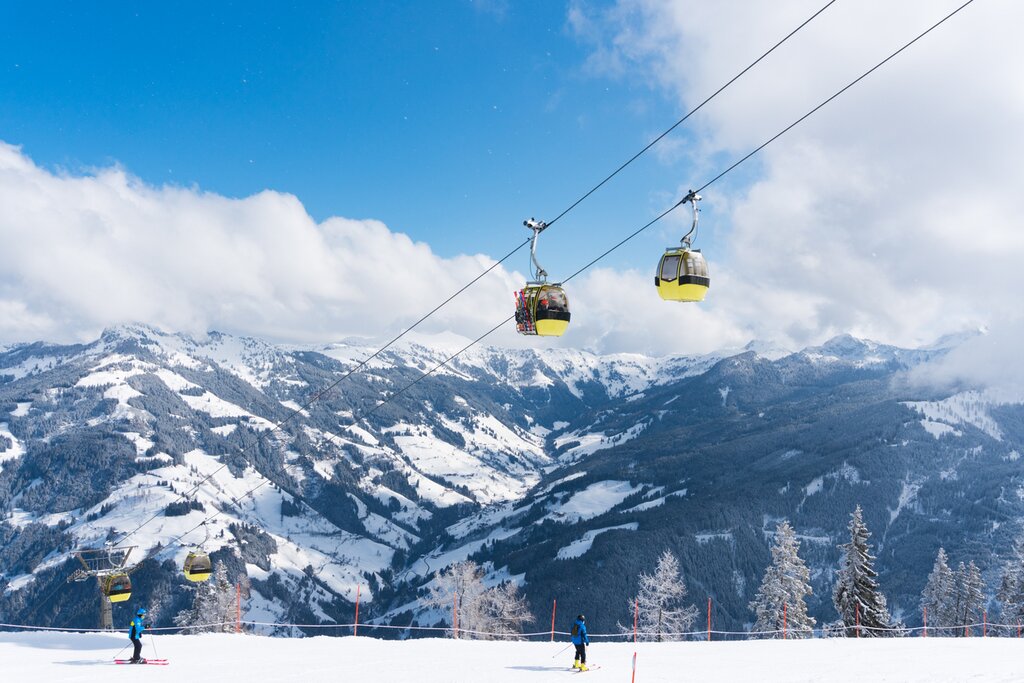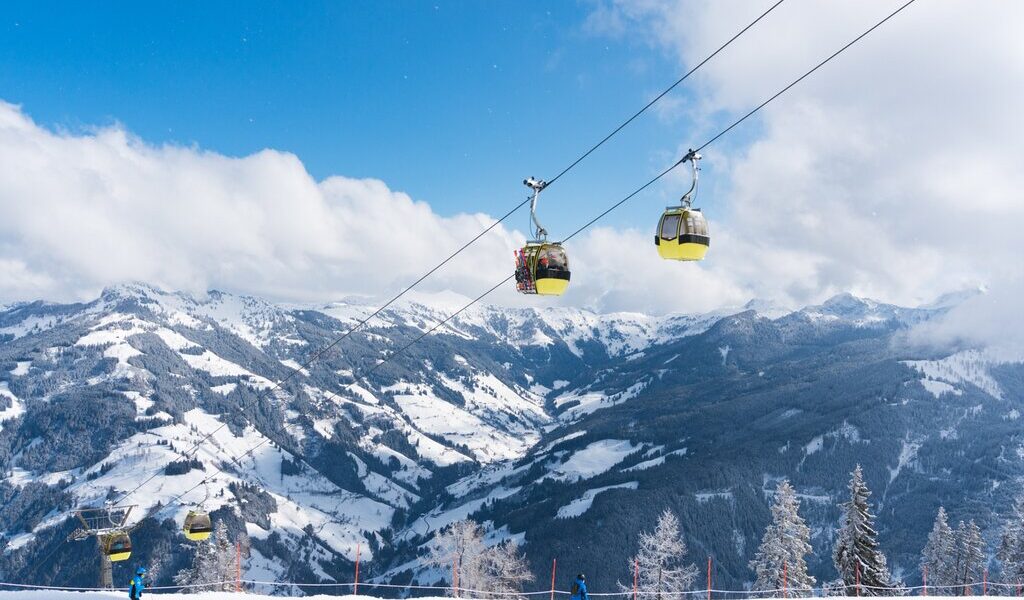
January is mid-winter in Austria, and that’s great news if you’re a skier, as there are now excellent conditions at ski resorts in the Alps. At lower altitudes with milder climes, Vienna’s galleries and museums make appealing indoor destinations. And whether you’re a keen dancer or would just like to dress up and people-watch, Vienna’s ball season is an event to behold. Read on for more information on traveling to Austria in January.
## Austria in January: A Winter Wonderland
January in Austria presents a unique travel experience, defined by its crisp weather, captivating landscapes, and a blend of cultural festivities. As a landlocked country nestled in the heart of Central Europe, Austria experiences a distinctive winter season. While the image of snow-capped mountains might spring to mind, it’s important to remember that Austria’s geography is diverse, with both mountainous regions and gentler, lower-lying areas.
The weather in January is decidedly mid-winter, bringing cold and snowy conditions. The Alps, the majestic mountain range that graces a significant portion of Austria, naturally experience the brunt of winter’s chill. Here, expect colder temperatures and stronger winds, especially in the higher-altitude towns and popular ski resorts. In contrast, the northern and eastern parts of Austria, characterized by their lower elevation, generally experience milder winter conditions.
Even in cities like Vienna and Salzburg, snow is a common sight during January, adding a magical touch to the already stunning urban landscapes. While nighttime temperatures frequently dip below freezing, hovering around or below 32°F (0°C), daytime temperatures tend to be slightly more forgiving, offering a chance to comfortably explore the cities’ attractions.
When it comes to crowds and costs, January presents a mixed bag. Austria’s reputation as a world-class skiing destination means that its ski resort areas become incredibly popular during this month. This translates to higher prices for accommodation and services, and a noticeable increase in the number of visitors. Booking your accommodation well in advance is highly recommended, as hotels and chalets fill up quickly during this peak season in the Alps.
However, venturing beyond the mountainous regions reveals a different story. Outside of the ski resorts, you’ll find fewer tourists throughout Austria, potentially opening up opportunities for better deals on accommodation, particularly in the cities. It’s worth noting that some smaller towns, particularly those nestled within the picturesque Salzkammergut lake district, tend to quiet down considerably during the winter months, with some businesses temporarily closing their doors. Therefore, it’s essential to plan your itinerary accordingly and check the opening hours of attractions and restaurants in advance.
For those with a penchant for elegant social gatherings, attending one of Vienna‘s renowned balls is an absolute must. These extravagant events, most of which take place in January and February, are a highlight of the Viennese social and entertainment calendar. However, securing your ticket requires careful planning, as the most popular balls sell out months in advance. Ticket sales typically commence in the fall preceding the event, so be sure to mark your calendar and book early to avoid disappointment.
Choosing where to go in Austria in January depends largely on your interests. Vienna, with its rich history, stunning architecture, and world-class art scene, is an exceptional destination year-round, but January offers a unique advantage: fewer crowds. This means you can explore the city’s numerous art galleries, museums, palaces, and other notable public buildings at your own pace, without having to contend with hordes of tourists. The magnificent Schönbrunn Palace, once the summer residence of the Habsburgs, takes on a particularly enchanting appearance when adorned with a dusting of snow. When the weather turns particularly cold and snowy, escape indoors and immerse yourself in the artistic treasures housed within the Kunsthistorisches Museum, the Belvedere Gallery, and the whimsical Hundertwasser House.
If you’re staying in Vienna and fancy a day or two on the slopes, the Zauberg Semmering ski area is conveniently located just a 75-minute drive from the capital. While relatively small compared to some of the larger resorts in the Austrian Alps, Zauberg Semmering is popular with locals due to its accessibility. Even without a car, you can easily reach the resort by taking the Semmeringbahn, a scenic mountain railway. The skiing at Zauberg Semmering is particularly well-suited to beginners and intermediate skiers, but the resort also offers a freestyle park, night skiing, ice skating, sledding, and other winter activities.
For avid skiers seeking a more challenging and extensive skiing experience, venturing deeper into the Austrian Alps is highly recommended. The western city of Innsbruck serves as an excellent base for skiing adventures, thanks to the Nordkette Cable Car, which whisks passengers directly from the city center to the ski fields. From Innsbruck, you can easily access renowned ski areas such as Mayrhofen, Zillertal, Kitzbühel, and Hafelekar-Rinne, the latter being one of the steepest ski runs in Europe for the most daring and experienced skiers.
Beyond the slopes, January in Vienna marks the height of ball season (which continues into February), offering a glimpse into traditional Viennese culture. These formal dances, held in opulent palaces, concert halls, theaters, and other grand venues, provide a unique and unforgettable experience. While knowing how to waltz is certainly a bonus, it’s not essential, particularly if you opt for a ticket that includes a reserved table. Guests typically dance within their social circles, and formal attire is strictly required, adding to the elegance and sophistication of the occasion.
Several events mark January in Austria, starting with New Year’s Day, a public holiday observed nationwide. The Vienna Philharmonic New Year’s Concert, held on the morning of January 1 in Vienna‘s Musikverein concert hall, is a globally televised event and a quintessential Austrian tradition. Epiphany, a religious festival celebrated on January 6, is another public holiday observed nationwide, with many businesses and offices closing for the day. Music lovers can revel in Mozart Week, a week-long classical music festival held in Salzburg in late January and early February, dedicated to celebrating the life and works of the iconic Austrian composer, Mozart. This festival features a series of concerts held in various venues throughout Salzburg, offering a captivating experience for classical music enthusiasts.
(Word Count: 842)
B-126

